
 Dr. Bhavana Jain
Dr. Bhavana Jain
Stress is normal part of life now days. At some point everyone experiences some degree of stress. Many events that happen to you and around you and many things that you do yourself- put stress on your body. You experience good or bad form of stress from your environment, from your body and from your thoughts.
Stress is any change in the environment that requires your body to react and adjust in response. The body reacts to these changes with physical, mental and emotional response. Whenever we feel stressed, our bodies release adrenaline and stress hormone (like cortisol) to prepare the body for fight or flight response. Excess stress can lead to health complications and lifestyle behavioral changes such as becoming physically active, changing dietary habits and increasing alcohol intake.
Although not all types of stress are negative, the truth is that states of nervous agitation or emotional tension are quite common in today’s society, and in some cases they become stress chronic. Situation such as overwork or loss of work, financial problems or illness or a person faces continuous challenges without relief or relaxation. When this happens, we aware of how it affects our emotional state or the ability to rest and get enough sleep at night. But we don’t always pay enough attention to how stress affect our oral health.
While we may all react to stress differently when our immune system is weakened, it triggers our brain to seek comfort foods or from unhealthy habits like drinking alcohol and smoking. These damaging habits can place your oral health at risk.
The effect of stress on your oral health starts unconsciously. Not until you feel pain or see damages in your teeth that you will realize the negative implications of stress in your oral health. Early detection of your body responses during distress can still save your teeth, gums and jaws. Check if you’re having signs of the following oral health conditions:-
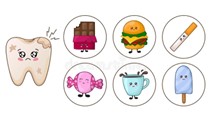
The food that you eat and your lifestyle habits can affect your oral health in many different ways. When you are stressed, self-care becomes less important and indulging in mind boosting foods high in carbs, sugar and caffeine brings comfort. An imbalanced diet and inattention to an oral hygiene routine can cause plaque buildup, caries and even tooth loss.
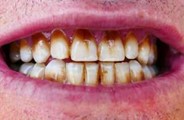
If you’re stressed out it’s likely that practicing a good daily oral care routine probably isn’t high on your agenda. By neglecting brushing and flossing you may become more prone to tooth decay and gum disease.


Hormones are natural chemicals that regulate bodily functions. Releases hormones that tell your body how fast to grow. The hormone levels in your body are directly related to your body’s inflammatory response to disease and infection. Inflammation is the root of all dental health problems.
CAUSES
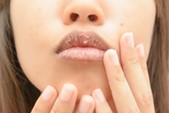
Dry mouth is also known as “Xerostomia”. It occurs when the salivary glands in your mouth don’t produce enough saliva to keep your mouth wet. It can be caused by a condition that directly affects the salivary glands.
CAUSES
Sign & Symptoms:-
If you are not producing enough saliva, you may notice these signs and symptoms all or most of the time;
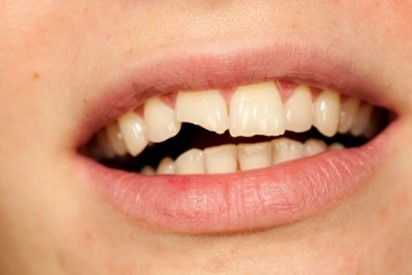
Virtually all teeth have tiny fissures and cracks due to everyday wear and tear. By themselves, these small cracks are no problem. But when we are stressed, we tend to clench our jaws and unconsciously grind our teeth, often in our sleep. That excess pressure on those tiny fissures can cause teeth to break and fracture.
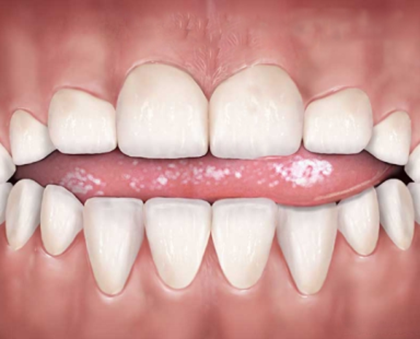
Tongue thrust is a condition when the tongue pushes forward too much when swallowing or even resting. Normally, when swallow your tongue should go up on the roof of the mouth. While tongue thrusting makes it end up between the front teeth or pressed against them. Such tongue position leads to teeth malocclusion in most cases. Tongue thrust most often manifest in children, if not treated earlier, it can be issue in adults.
Although some of us don't even notice we're tongue thrusting, it leads to serious disorders requiring treatment. Tongue thrust often results in bite and teeth issues and facial structure changes.
While tongue thrusting is common in infants, it can adversely affect the teeth and mouth in children and adults. Having continuous pressure on your tongue against your teeth can force your teeth out of normal alignment, cause speech issues or reverse previous orthodontic work.
When talking about tongue thrust in adults, it may happen during sleeping, when the mouth is open and the tongue is uncontrolled. Such sleeping behavior is often a result of stress and anxiety.
Causes
Sign & Symptoms-
Tongue thrusting can result in several problems that interfere with oral appearance and functions. These signs of tongue thrusting include-
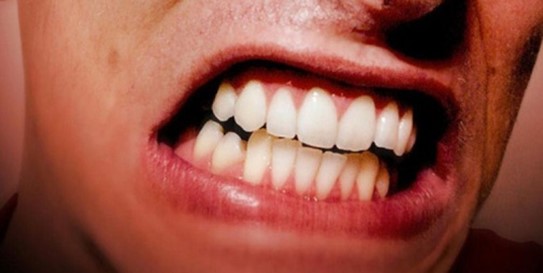
Most people probably grind and clench their teeth from time to time. Occasional teeth grinding medically called as Bruxism, does not usually cause harm, but when teeth grinding occurs on a regular basis the teeth can be damaged and other health complication may arise.
Bruxism is the dental term for grinding and clenching your teeth. This can happen at any time of the day, but more commonly it occurs at night when you’re asleep and often without realizing it as a result of stress and anxiety. Constant worrying and thinking, nervous tension, anger and frustration can cause people to start grinding.
Sign & Symptoms:-
Because people are often not aware that they grind their teeth, it’s important to know the symptoms of bruxism and have it evaluated. The following symptoms you may notice:-
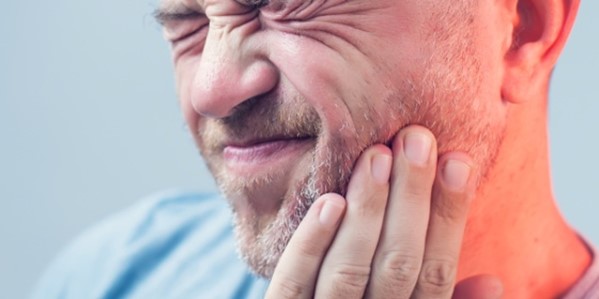
Many of us don’t associate our jaws with our dental health, but aches and pains in the part of our bodies can indicate that problems may arise, or already have done in relation to our teeth. These aches and pains can be result of Temporomandibular joint disorder (TMJD)
Temporomandibular Joint (TMJ) is a joint that connects your lower jaw to the skull. It’s therefore essential for chewing, talking and yawning.
Temporomandibular Joint Dysfunction (TMD) is a group of conditions affecting the TMJ and surrounding muscles or it is a condition that involves pain or difficulty in moving your jaws.
Stress can affect your Temporomandibular joint especially if the symptoms of bruxisms persist and are left untreated. TMJ connects your jaw to the bones of your skull at the temple in front of each ear. This joint is responsible for moving your jaw up and down and side to side while you speak, eat and yawn. TMJ disorder is due to overuse of the muscles in the jaw when stress takes over.
Sign & Symptoms:-
The following symptoms you may notice:-
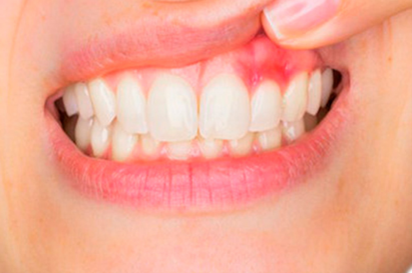
Gum disease is described as swelling, soreness or infection of the tissues supporting teeth. There are two main form of gum disease- Gingivitis and Periodontitis.
Gingivitis: - It is the earliest stage of gum disease. It happens when plaque and bacteria build up on your teeth and cause infection. Common symptoms include red, swollen bleeding gums.
Periodontitis: - It is a serious form of gum disease. It’s a bacterial infection that starts by inflaming the soft tissues around your teeth. If left untreated, it erodes the bone that supports your teeth, leading to mobility and tooth loss.
CAUSES
Sign and symptoms;-
Mouth sores are common ailments that affect many people at some point in their lives. One of the main causes of mouth sore is emotional stress. If you stressed, anxious or upset this can trigger an outbreak. The two kinds of sores that can be manifest are-
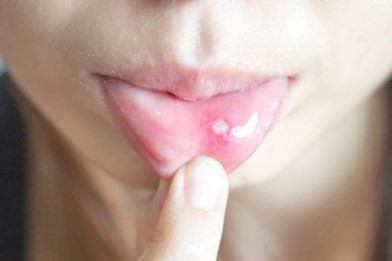
Canker sores are the mouth ulcers that occur inside the mouth. These canker sores are also known as “Apthous Ulcers”. They can usually appear on your cheek, inside of your lip or tongue. They can appear in cluster or just a single small to larger lesions which can be very painful, especially when you talk or eat. These typically disappear in 7-10 days.
Causes
Sign & Symptoms-
2. COLD SORES

Cold sores also known as fever blisters, which are caused by herpes simplex virus. They are fluid-filled lesions that often show upon or around your lips or the roof of your mouth. An outbreak of these annoying sores usually occurs those times when you are going through a lot of stress and anxiety. They are transmittable to others.
When herpes simplex typically manifests as lesion on the lips or corner of the mouth, they can also appear on your gums which can make it challenging of to brush or floss.
Cold sores tend to last between 5-7 days, and refraining from brushing for such a long period puts you at high risk of developing tooth decay and gum disease.
Causes-
Sign & Symptoms-
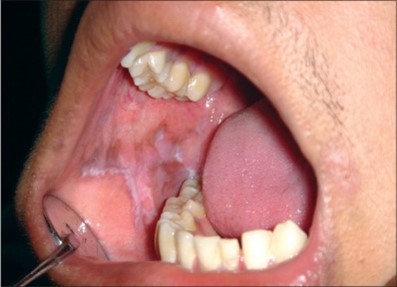
It is an ongoing chronic inflammatory condition that affects mucous membranes inside your mouth. This condition is characterized by ulcers, sores and white lines or patches appearing in the mouth. These lesion may cause burning, pain and other discomfort. It is also caused by a viral infection that the body is more susceptible to when stressed. It affects one to two percent of adults, usually after the age of 40.
Oral lichen planus can’t be passed from one person to another. This disorder occurs when the immune system mounts an attack against cells of the oral mucus membrane for many reasons.
CAUSES-
Sign & Symptoms

Burning mouth syndrome is a hot feeling or sensation which can affect your lips, tongue, palate or areas all over your mouth. It is a painful disease that damages your gums and teeth. BMS is sometimes called Glassodynia. This syndrome is characterized when unpleasant burning sensation on the lips, tongue, gums or palate. It can be caused by psychological factors brought on by stress.
You get this feeling when there are changes in the way the nerves in your mouth send messages to your brain. For example- about taste and temperature. When your brain doesn’t understand these messages properly it can cause feeling of pain and burning. Although some parts of your mouth may feel like they are burning, they will not be able to see any soreness or redness in the areas that are hurting. Sometimes it is also called as “neuropathic pain”, as it happens when there is damage to the nerves.
CAUSES
Some possible causes can include-
Sign and Symptoms:-

The link between oral health and overall well being isn’t symbolic- it’s physical. The mouth is both the primary pathway into the body and an ideal environment for bacteria to thrive. There are up to six million bacteria present in a typical person’s mouth. Most are harmless or at least well controlled by the body’s natural defenses- as long as good oral hygiene is practiced. But if that become a problem, bacteria can multiply, enter the bloodstream and spread to other parts of the body. Oral bacteria and inflammation associated with gum disease may contribute to any number of serious conditions including:-
MANAGEMENT OF STRESS
When dealing with stress, people tend to focus their attention on their problems. This causes many people to skip self-care. Skipping healthy routines can have negative consequences on both our dental health and well being.
To manage your stress, explore some stress management strategies such as:-
The benefits of eating healthy, well- balanced diet goes beyond your waistline. A diet packed with healthful fruits, vegetables, whole grains and lean protein can boost your general well-being. Avoiding giving into a sugar cravings when you feel stressed to help protect your teeth from decay. Uncontrolled sugar consumption can leads to diabetes and obesity.
Regular exercise is a natural way to promote mind and body relaxation, as well as improve your mood. Working out helps the body to stimulate the release of endorphins that prevent pain, improve sleep quality and gives you a euphoric feeling. People who engage in regular physical activities tend to feel less anxious and feel more positive about themselves. When you feel good, so does your body and mind.
Various relaxation techniques helps activate a state of mindfulness, allowing you to deal better with fight hormones-
Sleeping for 7-8 hours at night helps your body and mind recharge and feel refresh in the morning while lack of sleep prevents the body to manage stress properly.
Take time to enjoy the activities that bring you pleasure and joy. Set aside a few hours for gardening, listening to your favorite song or reading during your free time at home. Carving out hobby time does not only lower the stress level but also your heart rate.
Most people today live a busy life. Taking a break and relaxing will give your mind and body relief from stress. Make sure to enjoy life. Unwinding can help reset your stress tolerance and boost happiness.
We mentioned that teeth grinding can be caused by stress. A lot of the time this grinding occurs while someone is sleeping. Using a night guard while asleep will protect your teeth. It will act a barrier between your teeth protecting your enamel. It also provides cushioning to reduce the tension in your jaw.
Tongue thrusting can be resolved with proper treatment at any age. Orthodontic treatment usually provides adequate correction for tongue thrusters in older children and adults.
The treatment may include myofunctional therapy or tongue therapy to break the habit of tongue thrusting, comparable to physical therapy that focuses on the tongue. Speech therapy may also be necessary.
Regular dental visit are really important, as your dentist will be able to spot a change in your oral health and provide you with advice and treatment to rectify the problem. We recommend seeing your dentist every six month.
CONCLUSION
Stress and anxiety can have so many adverse effects on our lives that many people aren’t even aware of the cause. It can also lead to our oral health conditions which will inevitably affect our oral health. Understanding the sign and symptoms and the impact that stress can have on our bodies is the first step to tackling it, as well as learning some oral health facts and the methods we can use to prevent certain conditions and maintain a healthy smile.

Veronica - 2 years ago